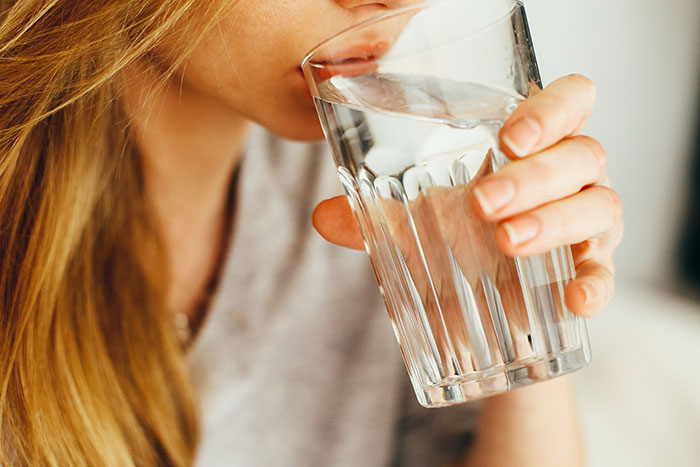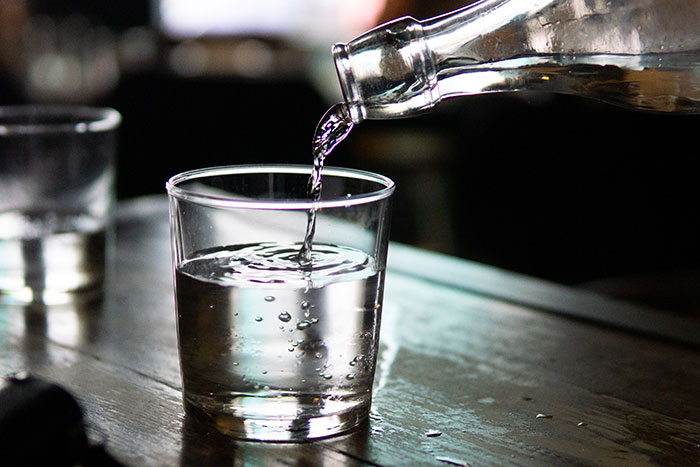Drinking water does much more for the body than just quench your thirst, it can even help you lose weight.
You may have heard it more than once before that drinking more water will help you lose more weight. But is this actually true? Well, the short answer is yes.
The fact is that drinking water helps boost metabolism, cleanses your body of waste, and acts an appetite suppressant. Furthermore, drinking more water helps your body stop retaining water, which leads you to drop those extra pounds of water weight.
While countless factors and behaviours can affect your body weight, if your goal is long-term, moderate weight-loss, then making sure you’re hydrated could be an excellent place to start.
Six reasons that drinking water may help you lose weight:
1. Water increases calorie burning.
- Some research indicates that drinking water can help to burn more calories.
- In a study, people who drank a pint of cold and room temperature water experienced an increase in energy expenditure.
- They burned between 2% and 3% more calories than usual in the 90 minutes after drinking the water.
- Water can also temporarily increase your body’s resting energy expenditure, or put more simply, more calories burned while resting.
- Drinking cold water can further enhance water’s calorie-burning benefits, because the body expends energy, or calories, by heating up the water for digestion.
2. Water can naturally suppress your appetite.
- When you feel hungry, your first impulse can be to have some food. However, eating may not be the answer. Thirst, which is triggered by mild dehydration, is very often mistaken by the brain for hunger.
- You may be able to decrease your appetite by drinking water if you are actually low in water consumption and not calories.
- Additionally, drinking water can promote satiation (to satisfy to the full) because it passes through the system quickly, which stretches the stomach and sends messages to your brain signalling you are full.
- Drinking 2 glasses of water should fill your stomach enough for your brain to register fullness.
 3. Drinking water may reduce liquid calorie intake
3. Drinking water may reduce liquid calorie intake
- It’s far too easy to increase liquid calories by drinking fizzy drinks, fruit juice, or tea and coffee with sugar.
- Many people also ignore how many calories they consume in so-called sports drinks and/or alcoholic beverages.
- By replacing just a few high-calorie drinks each day for a glass of water or other no-calorie drinks, such as herbal tea, may have long-term weight loss benefits.
4. Drinking water helps during exercise.
- Drinking water during periods of exercise is essential to the body. It dissolves electrolytes (minerals that include sodium, potassium, and magnesium) and distributes them throughout the body, where their electrical energy then triggers muscle contractions required for movement. An electrolyte imbalance can lead to cramping, but that’s not the only side effect of drinking too little.
- When your muscle cells are dehydrated, they will break down protein (muscle) far more quickly and build muscle more slowly, so your workouts become less effective.
- Furthermore, your body loses fluids quicker during exercise because it generates heat that’s diverted to the skin’s surface, where perspiration and evaporation help with temperature regulation.
- Staying properly hydrated will also help maintain your blood’s volume, so you can optimise the expansion of blood vessels at the skin’s surface to release heat.
- Being adequately hydrated can improve your workouts by reducing fatigue, which allows you to work out for longer and burn more calories.
 5. Water is necessary to burn fat
5. Water is necessary to burn fat
- Without water, the body cannot properly metabolise stored fat or carbohydrates.
- Increasing your water consumption may increase lipolysis, the process by which the body burns fat for energy,
- Drinking enough water is essential for burning off fat from food and drink, as well as stored fat.
6. Water can improve motivation and also reduce stress.
- When you’re dehydrated, you could experience symptoms such as fatigue, dizziness, and confusion—and who makes healthy decisions under those conditions?
- Dehydration may also be linked to sleepiness and reduced alertness.
- Dehydration leads to higher cortisol (your “fight-or-flight” and stress hormone) levels, making it harder to deal with everyday issues and affecting your motivation to exercise, cook at home, and make better food choices.
So, How much water should you drink?
I’m sure you’ve heard the common “eight glasses per day” rule, but the reality is, the amount of water needed varies greatly depending on your age, gender, health, physical activity, your tendency to sweat, and more. The majority of healthy people adequately meet their hydration needs by letting thirst be their guide, alternatively, using an online Hydration Calculator can help you on your way
One way to determine whether you’re drinking enough water is to take a peek after you have had a wee. If it’s dark yellow, you aren’t drinking enough. Aim for a light yellow colour.
Conclusion: Water and weight loss
The science does indicate that drinking more water may promote weight-loss and encourage other positive health outcomes. Water is critical in every cellular activity of our body from head to toe. By staying hydrated, helps the body run more efficiently and helps us feel better.
But, drinking more water is only one small part of your wellness journey. Drinking water is not going to have a considerable weight-loss effect without calorie restriction and/or exercise. Just relying on drinking water is unlikely to lead to significant weight loss. As always, it’s important to embrace a more comprehensive and sustainable approach to weigh-loss.
Jeff
If you would like more information about how having a nutrition plan can improve your health, why not book a FREE 30-minute consultation with me to discuss your health & fitness goals?

